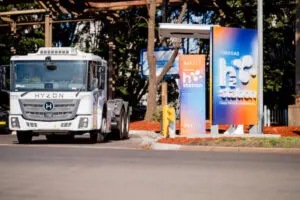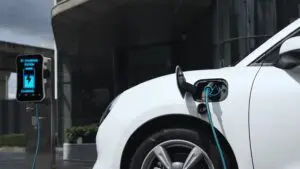Operators of gas distribution grids need to prepare for a “disruptive end to their business model” with net-zero scenarios seeing very limited use of hydrogen in heating buildings, according to a new study from German think-tank Agora Energiewende.
The report points to an emerging consensus concluding “that the role of hydrogen for climate neutrality is crucial but secondary to direct electrification”, with green hydrogen to be used to decarbonise industry, shipping, aviation, “and firming a renewable-based power system.”
But it says green hydrogen will see very little use in heating for buildings, leading to “a disruptive end” to the business model of gas distribution grids.
And despite lobbying efforts by gas distribution companies aimed at ensuring their longevity by promising a transition from gas to hydrogen, the report concludes that “there is no credible financing strategy” for hydrogen use by households.
“Blending is insufficient to meet EU climate targets and carbon prices high enough to deliver hydrogen heating would be unacceptable for customers,” the report says.
According to the report, even a 20% renewable hydrogen blend by volume into the gas grid would raise the price of wholesale gas by around 33% and reduce emissions by only 7%.
The report says heating will make up the smallest share of hydrogen applications in European net-zero scenarios, with less than 10% of the overall hydrogen demand in 2050.
While hydrogen will be virtually non-existent in heating households, hydrogen still can “be useful for covering residual heat load at combined heat and power plants generating district heat.”
With this in mind, financing renewable hydrogen development will therefore need to be targeted towards no-regret sectors like industrial and power sectors.
“The current business model of the gas distribution system operators is up for a serious challenge as hydrogen infrastructure will increasingly focus on industrial demand,” said Matthias Buck, director of European energy policy at Agora Energiewende.
“Gas distribution grids close to ports will most likely survive, because refuelling and storage infrastructure could provide an impetus for the decarbonisation of the maritime and aviation sectors.”
The Agora Energiewende report suggests five policy instruments – carbon contracts for difference (CfD) in industry, a power-to-liquid quota for aviation, auctions to support combined heat and power plants, measures to encourage markets for decarbonised materials, and hydrogen supply contracts.
The report, 12 Insights on Hydrogen, is targeted at the European Union, which the authors conclude has enough green hydrogen potential to satisfy its demand.
However, two challenges must be addressed – acceptance and location of renewables. This is specifically important considering that Agora posit that between 1 and 4GW of additional renewables must be deployed for each gigawatt of electrolysis.
Where gas distribution grids will continue to see steady decline, “heat pumps will offer a much better deal” according to Agora, adding that even “in terms of the most efficient use of renewable energy from a system perspective, [residential] hydrogen boilers are the worst option.”
The report goes on to explain that, for every 100kWh of renewable energy input to a renewable hydrogen boiler, only 61kWh of heat would be produced.
Conversely, “depending on ambient temperatures, heat pumps supply between 135 and 270kWh of heat for every kWh of renewable generation … 2 to 4 times the output of the hydrogen boiler.”
The report concludes that “by 2050, all the gas flowing through distribution networks needs to be either clean hydrogen, synthetic methane produced from decarbonised hydrogen, or biomethane.
“But it’s already clear now that in the future there will be far less gas than today, and distribution grids will have a hard time attracting new investment, particularly over the next two decades, when heat pumps will offer a much better deal.”
Similarly, hydrogen heating for households “will be a niche solution”, according to Agora, though “some heat networks with high temperatures may have residual heat loads requiring hydrogen back-up.
“We should also account for those who might prefer sticking with their boiler instead of carrying out major work, even if it ultimately saves thousands of euros. Niche opportunities for hydrogen heating like these may arise, but most distribution networks must prepare for a phase-out of their low-pressure gas assets.”










